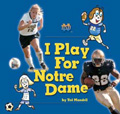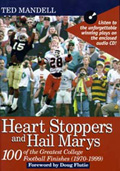 |

OpEd Columns
 |
 |
 |
We're
Choosing a President, not a Breakfast Cereal (Indianapolis
Star 11/13/04)
The dust has settled.
And once again, America (or half of the eligible voters) has chosen the
message over the messenger. We like our sentences short and we want our
messages simple.
Get to the point. And repeat it.
It works for commercials, it works for tabloid newspapers, it works for
politicians. Clearly America is a country where “what” you
say is significantly less important than “how” you say it.
If that wasn’t the case, the entire financial backbone of the television
industry wouldn’t exist. We live in a 30 second society.
The war. The economy. The environment. They matter not. It’s the
advertising, stupid.
“Al Gore, claiming credit for things he didn't even do. “
George W. Bush ad (2000) with the text gorewillsayanything.com at the
bottom of the screen.
Politics is simply another form of advertising. And the politicians who
advertise their message best win. The problem is we’re not buying
toothpaste, we’re choosing leaders.
According to TV (where campaigns are won and lost), every election we
have the same choice. Vote for the weak waffler, or vote for the strong
simpleton. One candidate is honest, the other a liar.
“You can't have a president that says one thing, and does another.”
–George HW Bush campaign ad referring to Bill Clinton (1992).
There is no truth in advertising, only deception. That’s the sole
purpose. Distort and persuade. Combine a product with a seduction. Attract
a consumer.
In the art of persuasion, image trumps information every time. Beer and
bikinis. Fast cars and fast women. Patriotism and politicians.
“John Kerry, whichever way the wind blows.” George W.
Bush ad (2004) with image of Kerry windsurfing.
Politicians spend millions of dollars on TV ads. The most uncreative,
childish 30-second spots produced every election cycle. Beer ads are better.
Cell phone ads are better. Viagra ads are better.
“Bill Clinton said he'd lead the war on drugs and change America.
All he did was change his mind. America deserves better. “- Bob
Dole campaign ad (1996).
Political ads stink. They give television a bad name. And with gems like
The Swan and Fear Factor lowering the bar, that’s an amazing feat.
Congressional and presidential campaign spending in 2004 approached a
staggering $4 billion dollars. A large chunk of that, sometimes as much
as 90 percent of a candidate’s funds, went to television advertising.
To ad agencies, to marketing consultants, to production companies, to
networks.
To Waste.
Wouldn’t it be better for Americans to choose their President like
a college student researches a term paper instead of how a toddler chooses
a breakfast cereal? It’s time to make every attempt to educate the
voters, not make every attempt to deceive them.
It’s time to ban all political advertising on television.
Let’s take the millions of dollars used in political advertising
on TV and create a national voter’s brochure. Every registered voter
gets one in the mail.
Each autumn, every county in America should produce a black-and-white
brochure where each candidate on the ballot, from county commissioner,
to school board member, to presidential candidate, is allowed a specified
number of words to tell the voters their qualifications, their experience,
their specific ideas on the relevant issues.
Want to run for Governor? Here are four pages of white space. Show us
your resume. Make your argument.
Why shouldn’t we all have the same information to make our judgments?
Why do we vote based on he said-he said arguments in half minute slander
spots? Why must this country end up as divided as a couple of cliques
of junior high girls?
Author Aaron Levenstein once said, “Statistics are like bikinis.
What they reveal is suggestive, but what they conceal is vital.”
“2.2 Trillion Dollars. That’s a lot of money. It’s our
government’s projected surplus. Al Gore plans to spend it all and
more. Gore's big-government spending threatens America's prosperity.”
–George W. Bush campaign ad (2000).
If statistics are like bikinis, political ads are like a thong on an obese
swimmer. What it reveals is distasteful, but what it conceals is unthinkable.
Ted Mandell teaches in the Department of Film, Television, and Theatre
at the University of Notre Dame.
Copyright 2004 Ted Mandell.